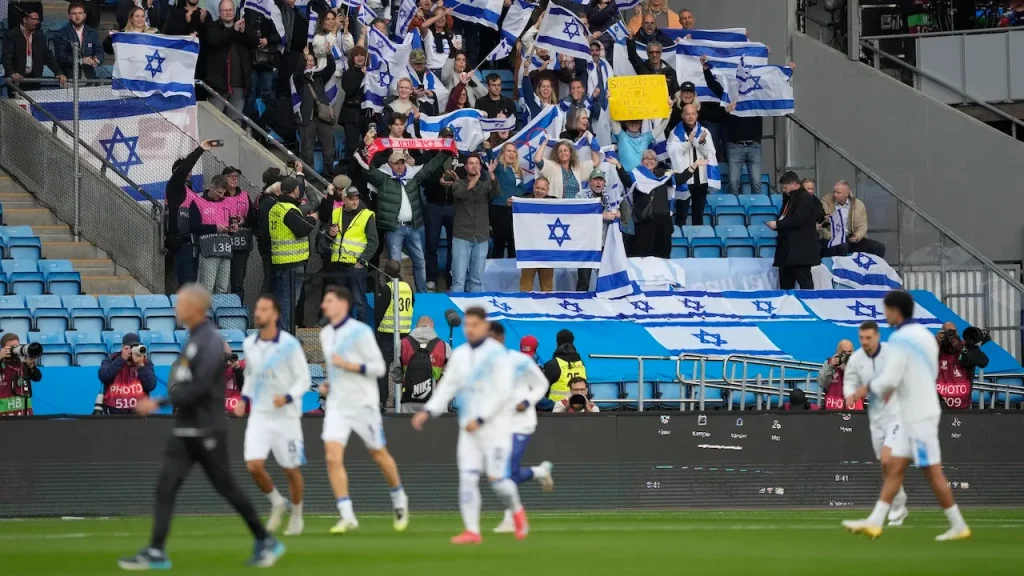Irish Football Association Calls for Israel’s Suspension from UEFA Competition
In a significant move within European football, Ireland’s governing body for soccer has joined Norway and Turkey in calling for Israel’s suspension from the Union of European Football Associations (UEFA). The Football Association of Ireland (FAI) passed this resolution with over 50% of delegates supporting it during a vote held on Saturday. This decision comes amid growing tensions and debates about Israel’s participation in international sports competitions.
The Irish proposal specifically cited two alleged violations of UEFA statutes by the Israel Football Association. First, it accused Israel of “organizing clubs in occupied Palestinian territories without the consent of the Palestinian FA,” and second, “the alleged failure of the IFA to enforce an effective anti-racism policy.” In addition to calling for Israel’s suspension, the Irish association requested that UEFA publish transparent criteria for the suspension or exclusion of member associations to ensure equal treatment for all members. This push for clear guidelines suggests a desire for consistency in how sporting bodies handle politically sensitive situations involving member nations.
The vote comes at a critical time for Israeli sports teams, which have faced increasing opposition in international competitions. While FIFA President Gianni Infantino announced in early October that no action would be taken against Israel’s national team following a peace proposal by former President Trump and Prime Minister Netanyahu, Israeli athletes continue to face challenges in multiple sports. Israel’s national team is currently scheduled to complete its World Cup-qualifying campaign against Moldova on November 16, though they cannot qualify automatically for next year’s tournament in North America as they sit third in their group.
Beyond football, Israeli athletes have encountered barriers in various international sporting events. In October, Israel’s national gymnastics team was denied visas to enter Indonesia for the World Gymnastics Championships, despite receiving security clearance from Israeli authorities. Gymnast Eyal Indig described this as “a blatant incident of discrimination on the basis of nationality,” highlighting the broader impact these political tensions have on individual athletes. Similarly, fans of Israeli soccer team Maccabi Tel Aviv were barred from attending their team’s match against Aston Villa in the UK due to safety concerns, following previous violence targeting the team’s supporters in Amsterdam last year.
The effects of the ongoing political situation have extended to cycling as well, where the Israel-Premier Tech team has faced significant challenges. Despite agreeing to remove “Israel” from its name effective from the 2026 season, the team lost its top sponsor, Canadian company Premier Tech, which announced it would end its partnership immediately. The company stated that “the core reason for Premier Tech to sponsor the team has been overshadowed to a point where it has become untenable for us to continue as a sponsor.” The cycling team was also excluded from an October race in Italy due to concerns over potentially disruptive pro-Palestine protests, following similar disruptions during the Spanish Vuelta.
These developments reflect the complex intersection of sports and geopolitics, with athletic competitions increasingly becoming sites of political expression and protest. Spanish Prime Minister Pedro Sánchez has also joined calls for Israel’s sports teams to be suspended from international competition, adding governmental weight to what began as movements within sporting organizations. Despite efforts to keep sports and politics separate, the ongoing situation demonstrates how difficult this separation can be in practice, especially during times of significant international conflict. For Israeli athletes and teams, these challenges create additional hurdles beyond the normal competitive pressures of international sports, affecting not just their participation but also their identity on the world stage.


